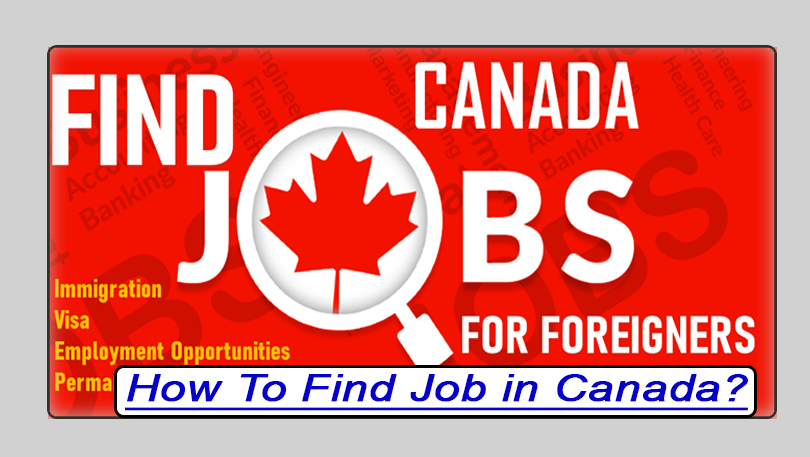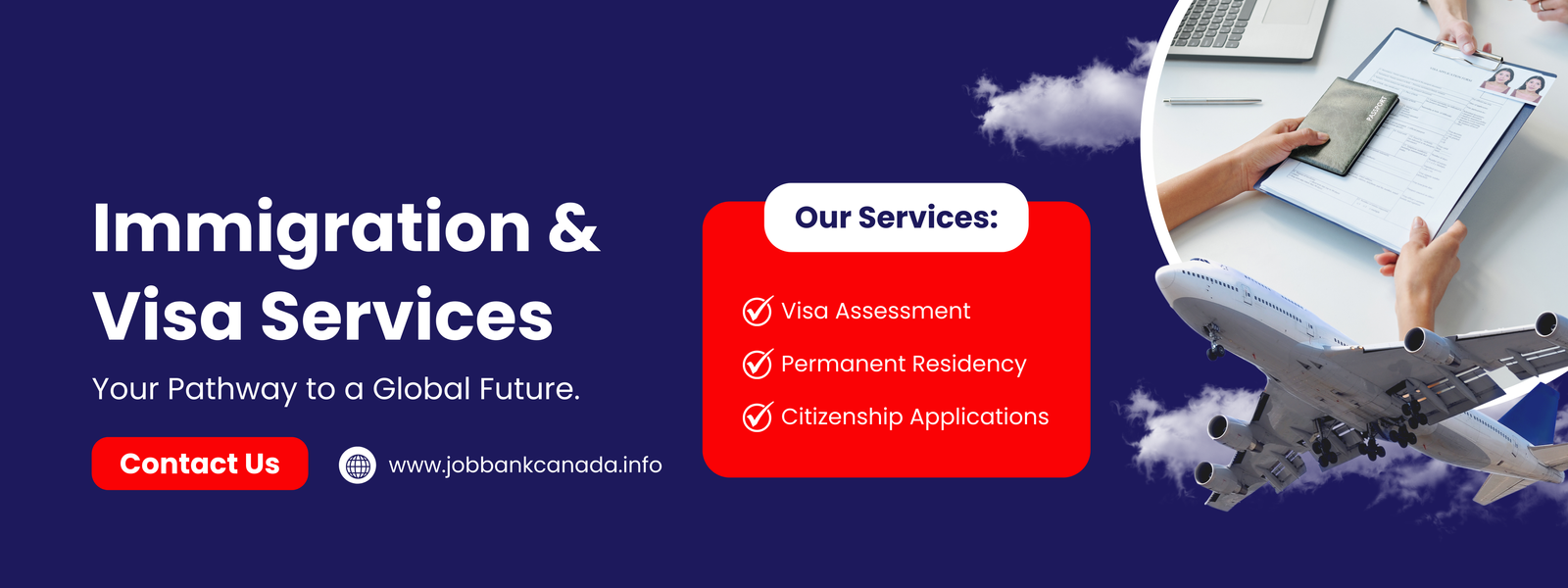How to Find Jobs in Canada for Newcomer?-7 Successful Approaches: Due to the many advantages this country has to offer, Canada has recently risen to the top of the list as one of the most popular ex-pat destinations. Clearly, finding a new job is one of the top worries people have when they relocate to a new nation.
Professionals with education, training, and experience are eligible to apply for well-paying government jobs in Canada. However, the Canadian government has made this process much simpler for everyone by offering relocation assistance, training for Canadian jobs, free language education, and more. Now that you know everything you need to about obtaining a job in Canada, let’s get started.
How Can a New Immigrant Find Work in Canada?
1. Get your Social Security number.
First and foremost, obtaining a Social Insurance Number is one of the most crucial steps you must take before you can begin working in Canada (SIN). You don’t know what that is? Basically, if you don’t have a work permit, it’s a nine-digit number that permits you to work in Canada. After submitting your application for a SIN, you can immediately begin working because it is incredibly simple to obtain.
You must complete an application and provide a few supporting papers in order to apply for a SIN. Applying for a SIN can be done in person, by mail, or online.
You can utilize this page to submit your application online. You will be led by it all the way through. Remember that for an online application, you will need digital copies of every document you have. To prevent any inconsistencies, make sure all of the information is accessible when you scan your documents.
Make careful to send the original documents whether you are applying in person or mailing them via mail.
A primary identity document, a secondary identity document, a supporting document, proof of address, and the application itself are required for your application.
A work visa provided by IRCC or CIC, a diplomatic identity card, and a work authorization certificate issued by the Department of Foreign Affairs are all acceptable forms of primary identification.
The main purpose of a secondary identity paper is to verify your identity, legal name, and date of birth. Either a legitimate passport or a driver’s license will do.
A marriage certificate or another court document with your present name on it is required as a supporting document.
The government, a landlord, your company, or a nonprofit should have issued the evidence of address that you give. Verify that the address listed on this document corresponds to the one listed on your application.
Remember that if any of your documents are in a language other than English or French, they must be translated and attested.
After 15 days of submitting your application and the necessary supporting documentation, you will receive your SIN by mail. Email updates will be used to keep you informed in the interim.
2. Get your qualifications reviewed
A set of credentials will be required for every job you apply for to verify your qualifications. Make sure that the Canadian government recognizes your credentials before you begin applying for jobs in Canada. This covers your academic credentials, such as your certificates, degrees, and international licenses.
To perform your craft in some professions, you must have a special license, which you can only get after having your credentials evaluated by the Educational Credential Assessment (ECA) to make sure they comply with Canadian standards. These careers include those in the fields of architecture, engineering, medicine, and numerous other federal positions.
Although it can be difficult, obtaining a professional Canadian license is required in order to work in Canada. You must undergo a professional skills evaluation, a language test, an interview, and a written exam in order to qualify.
Have your certifications and diplomas evaluated so you can include them in your resumes, even if you operate in an area that doesn’t call for a specific license. If your resumes and CVs reflect your degree of education and work experience according to Canadian norms, you have a better chance of finding employment.
3. Use a variety of internet services.
Without having to worry about a new career, settling into a new nation is challenging enough. For immigrants to Canada, there are several online services available (which can be accessible through this page) that make this transition much simpler.
These services will assist you not only in having your credentials accepted in Canada but also in opening doors for you in terms of your career. In addition to connecting you with potential employers, specialized services can also assist you in locating a home, enrolling your children in school, having a language evaluation, signing up for language classes, and much more.
Women, young people, and elders can all take use of programs designed specifically for them, which will help the move go as smoothly as possible.
Before you even arrive in Canada, you can contact them, and they will assist you with all the information you require for settling down and locating employment.
4. Examine various businesses and organizations to find jobs in Canada
It’s a good idea to do some market research before to applying. Go online and research the best and highest paying job markets in your industry. Examine many businesses to determine the ones you want to deal with.
This is also the ideal time to browse every company’s website to learn more about what they offer and how you can tailor your CV to fit their requirements.
5. Update your CV or resume.
After getting your credentials evaluated and researching the employment market, you can begin creating your CV.
Make sure your resume adheres to the Canadian format. Your contact information should appear at the top of your CV, followed by a rundown of your professional background. Afterwards, list your professional background and educational credentials.
You should be aware that most Canadian companies want to see your work’s highlights rather than all of its specifics.
Adapting your CV or resume to the firm to which you are applying is another important consideration. Every company will have different needs, therefore you should note in the copy you send to them the qualifications and talents that each company is seeking.
Keep in mind to avoid writing general talents. When discussing a particular ability, go into depth about how you learned it and how you used it in your prior jobs.
You can supplement your resume with a cover letter if you want to go above and above.
6. Develop your language abilities
French and English are the two official languages of Canada. It is crucial to develop your language abilities in both of them if you want to get a good job in the nation.
The government, fortunately, does an excellent job of assisting you with this by offering free language classes. You must pass a language proficiency test before you can register for the class, and once you have, you should be able to do so.
All provinces are allowed to enroll in these classes, which are free. You have a range of alternatives when it comes to the kinds of lessons you want to attend, ranging from fundamental to advanced levels. To assist you communicate with others in your field, language classes are also provided for certain fields.
7. Use networking opportunities
When looking for a job, social media and networking can be one of your best allies. Ask your friends and family if they know of any employment openings in your industry.
Joining social networking platforms like LinkedIn and numerous Facebook groups, where you can meet others working in your area, is also beneficial. Some of these folks might assist you in finding employment or suggest someone who might.
You May Like Below Jobs:
Administrative Officer Canada Government Jobs




